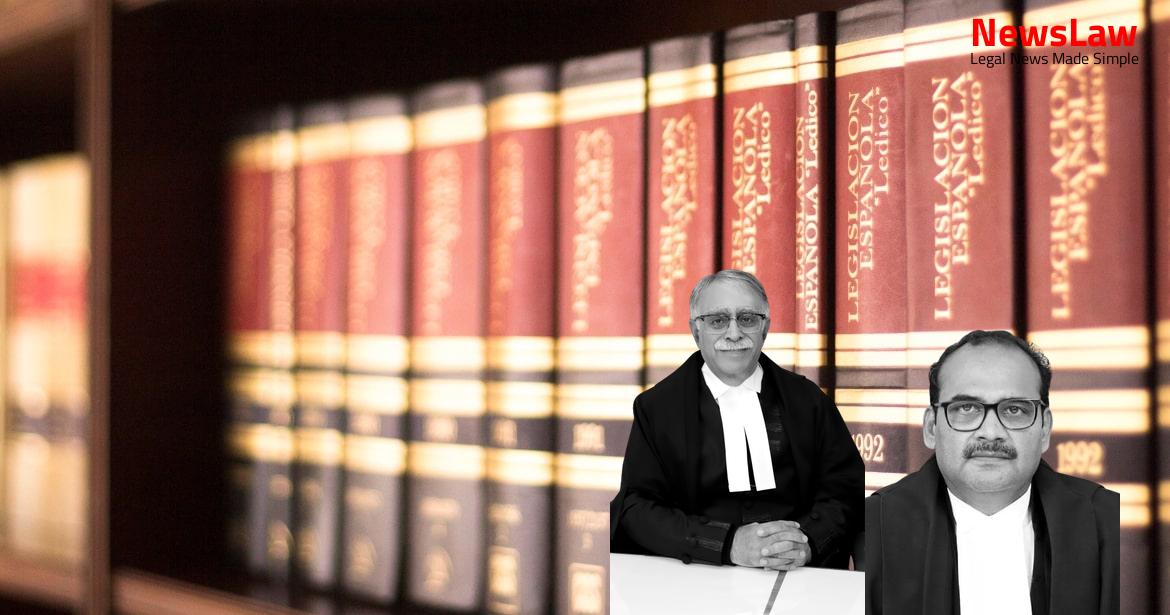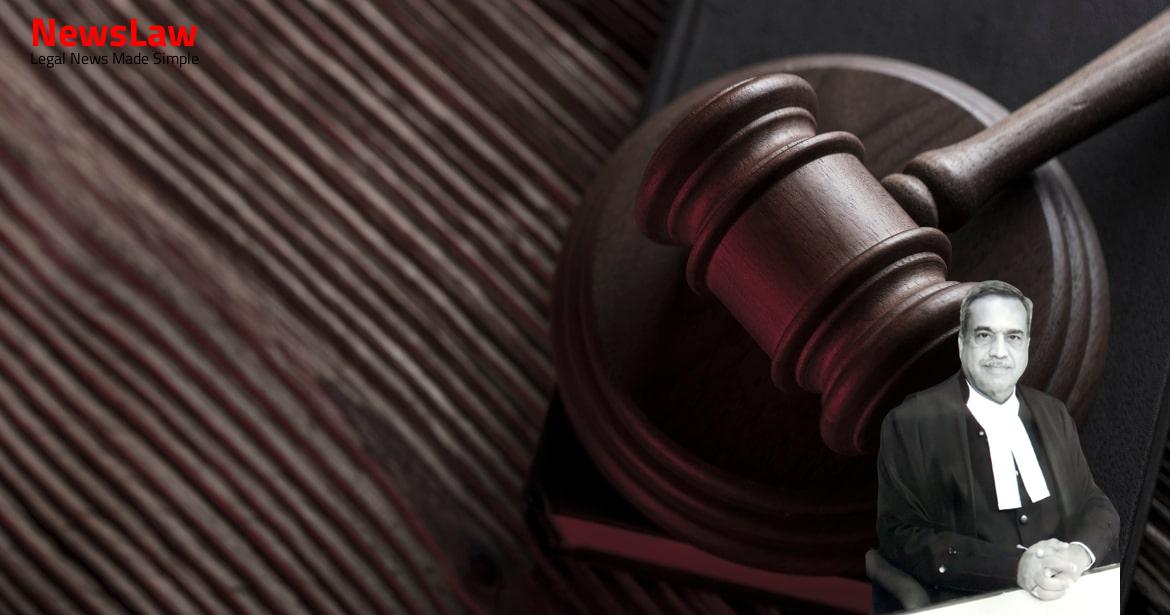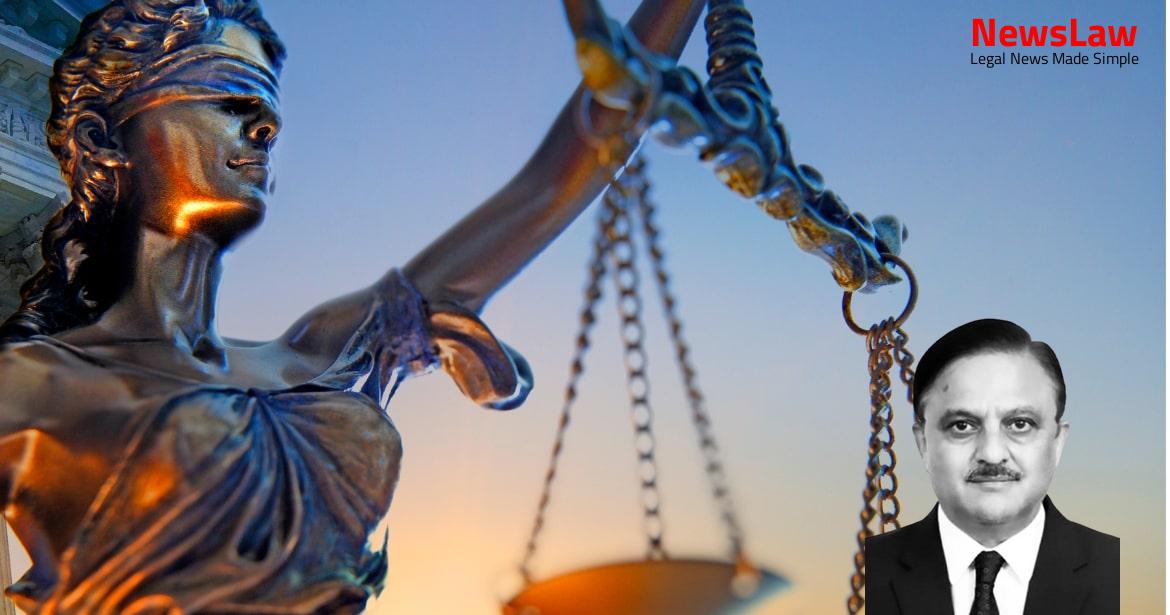In a recent legal development, the High Court revisited the case of K.G. Premshanker vs Inspector of Police & Anr. The Court addressed the binding nature of civil court decrees on criminal court decisions, shedding light on the interplay between civil and criminal proceedings. Stay tuned to understand the implications of conflicting judgments and the impact on the parties involved in this complex legal scenario.
Facts
- The appellant (accused) borrowed Rs.2,00,000/- from the complainant, K.P.B Menon ‘Sreyes,’ with a promise to repay it on demand.
- A cheque issued by the appellant was dishonored due to insufficient funds and ‘payments stopped by drawer.’
- The complainant filed a suit against multiple defendants, including the appellant, which was decreed in his favor.
- The same cheque that was part of the civil court proceedings was also involved in the Section 138 N.I. Act complaint.
- The appellate court found no reason to interfere with the lower court’s order and dismissed the appeal.
- The appellant filed an original suit and was one of the defendants named in a civil court case.
- The High Court partially allowed the appellant’s revision petition against his conviction under Section 138 of the Negotiable Instruments Act.
- The Trial Court convicted the appellant to undergo simple imprisonment for one year.
- The Trial Court ordered the appellant to pay compensation of Rs.2 lakhs.
- In default of paying the compensation, the appellant was to undergo further simple imprisonment for six months.
- The Trial Court judgment dated 30 January, 2007, acknowledged the correctness of the lower court’s analysis and conclusion.
Also Read: Transfer of Investigation to CBI in the Case of Manipur Call Centre Employee’s Death
Analysis
- Decree passed by Munsif Court may or may not be binding on criminal court
- No hard-and-fast rule exists for binding nature of civil court decrees on criminal court decisions
- Possibility of conflicting decisions between civil and criminal courts is not a relevant consideration
- Civil suits tend to be lengthy, which could delay criminal prosecutions
- Likelihood of embarrassment is the only relevant consideration in such cases
- No statutory provision or legal principle dictates that findings in one proceeding are binding in the other
- Decisions of civil courts are generally binding on criminal courts, not vice versa
- In the case of K.G. Premshanker vs Inspector of Police & Anr., conflicting decisions of civil and criminal courts are not relevant except for limited purposes like sentence or damages.
- The decision of the civil court will be binding on criminal courts, but not vice versa, as clarified in Karam Chand Ganga Prasad v. Union of India.
- In the M.S. Sheriff vs State of Madras case, criminal matters are given precedence over civil proceedings.
- There is no embargo for a civil court to consider evidence from criminal proceedings, as observed in Satish Chander Ahuja vs. Sneha Ahuja.
- The standard of proof in civil and criminal cases differs, with civil cases based on preponderance of evidence and criminal cases requiring proof beyond reasonable doubt.
- The civil suits should be stayed until the criminal proceedings are concluded to avoid conflict of findings between civil and criminal courts.
- The Court in criminal jurisdiction is bound by the civil court’s declaration for the purposes of security, as in the case of a returned unrealized cheque due to the closure of the account.
- Criminal proceedings related to the cheque must be quashed, and damages imposed by the lower courts must be returned to the appellant.
- Criminal justice should be swift and sure, with guilty parties punished and innocent individuals absolved in a timely manner.
- A Court on the criminal side is not subordinate to a Civil Court, and the hands of the criminal court cannot be restricted by a civil court order.
- The conviction under Section 138 of the N.I. Act was confirmed based on the issuance of a cheque against a legally enforceable debt.
- The High Court found no perversity in the concurrent findings of the lower courts and dismissed the revision.
- The party adopting both civil and criminal courses for the same issue and transaction raises concerns in the Court.
- Advocates have relied on various authorities of the Court during the submissions, including the case of M/s. Karam Chand Ganga Prasad & Anr. vs Union of India & Ors.
- Letting things slide until memories have faded is undesirable
- Not always a strict rule to follow
Also Read: State vs. Deputy Director of School Education: Transfer Order Reversal
Decision
- Pending application(s) shall stand disposed of.
- The judgment and order passed by Additional Sessions Judge, Thrissur, in Criminal Appeal 673 of 2007 is quashed and set aside.
- The conviction upheld by the Additional Sessions Judge which was handed down by the Judicial First Class Magistrate in CC No 51 of 2003 is also quashed.
- The High Court of Kerela’s affirmation of the conviction in Crl.R.P.No.1111 of 2011 is set aside.
- The appeal is allowed.
Also Read: Analysis of Suspension Order under PC&PNDT Act
Case Title: PREM RAJ Vs. POONAMMA MENON (2024 INSC 260)
Case Number: Crl.A. No.-001858-001858 / 2024



